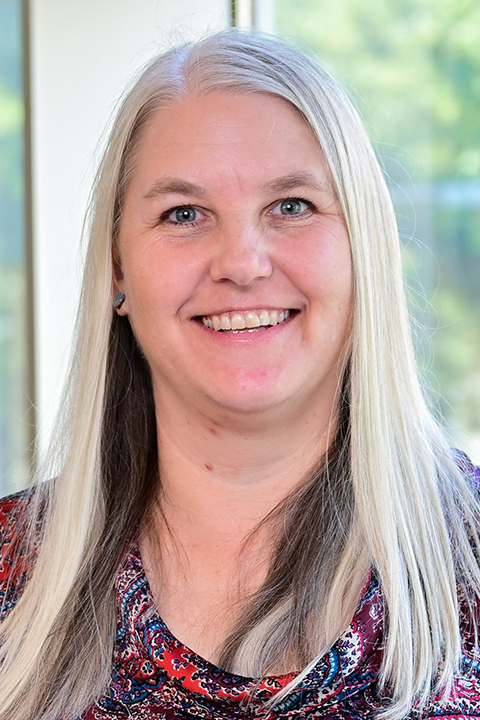Economics
Early in Columbia history, the Montgomery Library of Accountancy maintained the financial collection containing approximately 25,000 volumes. Many of these volumes are rare items, including the earliest printed work that dates to 1494. The Montgomery Library also contained 15,000 business manuscripts and account books dating from the years 1332 to 1900. The reference collection was important as well as the American and foreign periodicals, business services, government releases, directories, and statistical sources. The Reserved Book Rooms contained some 8,000 volumes on reserve for approximately 300 courses in business and economics.
A second home of the Business Library was formerly the main floor of Butler Library, located in the front wing of the building. It contained an actively-used collection of some 87,000 volumes, rich in business and economic materials, for use in research projects and course reading.
In April 1962, President Grayson Kirk announced the establishment of the Thomas J. Watson Library of Business & Economics in a new building, Uris Hall. According to the president, “The unique feature of the library is the support of and identification with individual library collections by corporations in fields of their major interest.”
The library has a basic collection of over 330,000 volumes and 296,000 microforms on business and economics, over 3,000 American and foreign periodicals, trade and association journals, and extensive files of current government releases, labor union periodicals, and pamphlets. In addition, the Marvyn Scudder Financial Collection, a large special collection of research materials, contains documentary material pertaining to the financial histories of thousands of corporations from 1821 to date. This remarkable research collection is one of the largest of its kind and affords an excellent opportunity for the study of business history, investments, security markets, industry analyses, and corporate finance.
The library collection increased heavily in print format until computer technology took over. Starting in 1992, the library has been adding more materials in electronic format. To facilitate and increase seating capacity, the library removed 29,000 volumes from on site to the Libraries’ shared off-site storage facility (ReCAP), namely publications from 1984 and earlier. Over the years, various architectural modifications have resulted in an increased number of items being moved to ReCAP. The library now sends about 5,000 volumes per year to ReCAP and purchases fewer print volumes and more electronic books and journals.
Currently, the library has 23,500 books and monographs, published from 2013 to the present, a limited reference collection, and approximately thirty current periodical titles in Watson Library. The microfilm collection has been moved to ReCAP.
The library collection focuses on the topics of: accounting, decision and risk analysis, corporate and international finance, management, marketing, security analysis, media, entertainment, and communications, and social enterprise. The library's collection reflects the Columbia Business School curriculum emphasis on teaching and research needs. A curriculum review resulting in greater emphasis on teaching international business led the library to add more resources on international business, companies, and industries.
a. Undergraduate
The Department of Economics offers a general economics major in addition to five interdisciplinary majors. The library collects materials in support of economics, financial economics, and joint majors with math, philosophy, political science, and statistics.
b. Graduate and Professional School
The Department of Economics has many areas of study in which students may earn a MA or PhD degree. The Libraries support their programs in the fields of:
Applied Economics
Applied Econometrics
Economics of Uncertainty and Information
Urban Economics
Economics of New York City
Historical Foundations of Modern Economics
Industrial Organization
Market Design
Corporate Finance
Economic Growth and Development
Economic Organization and Development of Japan
Political Economy
Labor Economics
Econometrics of Time Series and Forecasting
Public Economics
Gender and Applied Economics
International Trade
Globalization and Financial Crisis
Law and Economics
Economics of the Environment
Financial Crises
Behavioral Economics
Globalization and its Risks
Behavioral Finance
Seminar in Macroeconomics and Formation of Expectations
c. Institutes, Interdisciplinary Programs
In addition to the programs listed above, the Libraries’ collection also supports the work of the following organizations and initiatives:
Program for Economic Research (PER)
Center on Japanese Economy and Business (CJEB)
Cognitive and Behavioral Economics Initiative
Microeconomic Theory Initiative
Market Design Initiative
Industrial Organization Initiative
d. Course Reserves
Selection for course reserves is up to individual faculty members. The Librarian will do whatever is possible to secure specific materials absent from the collection. Course reserves for the department are housed in the Business & Economics Library.
a. Print
Overall, the Libraries’ existing collection and current acquisitions commitment, based upon available resources supporting the academic and research needs of the economics department and affiliates. Despite the increased shift from print collections to electronic collections in the last ten years, the library is still adding a limited amount of print collections.
The library collects annuals and monographs extensively and periodicals, newspapers, reference tools, scholarly series, and textbooks selectively. We also collect more country reports or country profile with unique content and not available in digital format.
b. Digital Collections
Columbia University Libraries offers a robust variety of electronic resources. The library collection strives to offer the full array of available databases relevant to the field. The number of e-book titles acquired has been increasing over the last several years. E-books may be purchased outright or may be part of a subscription services as appropriate, based on availability. Electronic items with reduced barriers to access are preferred, such as DRM-free e-books or multi-user licenses. There are numerous electronic journal subscriptions available as well. The Libraries also license data sets that are of use to the research interests of users.
c. Media
Audiovisual materials are excluded from selection, but archival collections may be present as part of broader electronic collections. Other tools, such as microfilm, are collected selectively upon specific request.
d. Languages Collected
English language materials are collected extensively, Western European languages very selectively, and non-Western languages are collected rarely.
e. Chronological Focus
We collect current publications extensively and earlier 20th-century materials selectively. Older materials are not generally collected unless they are needed on specific request.
f. Geographical Focus
We collect materials published in North America and Western Europe extensively and other countries selectively. However, the database collection has a more international focus, specifically on GDP or trade in India, China, and Europe.
g. Imprint Dates Collected
We collect materials focusing on current and recent (+/-three years) research topics extensively and earlier 20th-century topics, 19th-century topics, and earlier topics selectively. When antiquarian acquisitions are offered via gift or purchase, no specific chronological ranges are established in advance; rare or unique materials from any period may be considered.
The Rare Book & Manuscript Library (RBML) holds roughly 25,000 volumes of historical books, pamphlets, broadsides, and manuscripts related to economic and business history that were collected by E. R. A. Seligman, a professor in the economics department.
a. Consortia and Collaborative Collecting with Other Institutions
Development of the Business & Economics Library’s collection takes into consideration the collections of other Columbia libraries to minimize unnecessary duplication and to ensure that necessary materials are not overlooked. These are primarily the collections in Lehman Social Sciences Library, Butler Library, the Arthur W. Diamond Law Library, Science & Engineering Library, and Teachers College and Barnard College libraries. The collection is greatly enhanced by Columbia’s participation Borrow Direct, OCLC’s SHARES network of international academic libraries, and the Manhattan Research Library Initiative (MaRLI), a partnership with New York University and The New York Public Library. MaRLI also enables Columbia to expand its access to electronic journals and books through cooperative subscription and purchase agreements.
b. Selection for ReCAP
Due to multiple renovations to add seating in the Business & Economics Library, shelving space was reduced. All monographs published prior to 2010 have already been sent to ReCAP. The library continues to send about 5,000 volumes per year to ReCAP so there is enough space for future growth.
c. Deaccessioning
Titles are deaccessioned only in cases where the physical copy is disintegrating and no longer serviceable in print format. In these instances, either a preservation photocopy is made, or a digital surrogate created or obtained. Books located in the Rare Book & Manuscript Library are not deaccessioned.
d. Deduplication
Deduplication only takes place when a title has been identified for relocation to ReCAP and a copy already exists on shelf at that facility. Even in this instance, the Librarian will inspect the local copy for any unique features/unusual provenance before assenting to deduplication.
e. Digitization and Preservation
Materials may be treated for preservation issues as needed.

Yasmin Saira Rizvi
Research Support & Collection Development Librarian
- Science, Engineering, & Social Sciences Libraries

Amanda Bielskas
Director
- Science, Engineering, & Social Sciences Libraries
Last updated: January 2019